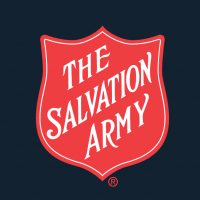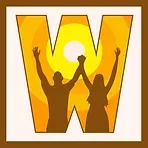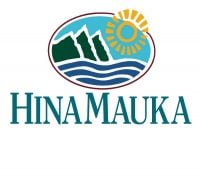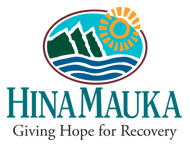Salvation Army Family Treatment Servs Womens Way
Drug Rehab Center in Honolulu, Hawaii
About This Honolulu, HI Facility
Salvation Army Family Treatment Servs Womens Way, a Non-Profit Opioid Addiction, Substance Abuse and Drug Rehab Center in Honolulu, HI. Primarily providing treatments (under a variety of additional methods) to people struggling with drug and alcohol addiction. This facility offers treatment that is fully covered by insurance.
Many opioid and alcohol users in Honolulu, HI see things as bleak. Fortunately, there are many rehab services available, such as Salvation Army Family Treatment Servs Womens Way, to help you get on the path to recovery.
Genders
Ages
Modality
Additional
Conditions and Issues Treated
Substance abuse is the excessive use of any type of drug. This includes alcohol, medications and illegal drugs. Substance abuse is treated with a combination of physical and mental treatments. Salvation Army Family Treatment Servs Womens Way patients detox and follow up with therapies that target the underlying cause of the addiction.
Opioid addiction is one of Hawaii‘s most prominent forms of addiction. Drugs, including heroin, oxycontin, and fentanyl, are the most common. To relieve pain, or ease other ailments, they are professionally prescribed, but they are often abused because they and the feelings they give are addictive.
Addiction is treated by detoxifying the body, so the medications’ chemicals are no longer impacting the individual. Salvation Army Family Treatment Servs Womens Way offers therapies to correct behavior and target the root of the problem are supplemented during and throughout treatment.
Levels of Care Offered
This center offers a variety of custom treatment tailored to individual recovery. Currently available are Aftercare Support, Drug Rehab, Intensive Outpatient, Outpatient, Partial-Hospitalization, Residential, with additional therapies available as listed below.
Intensive outpatient programs mostly conduct meetings on weekdays. Group therapy is the main element in most intensive outpatient programs. Most IOPs last for about 90 days and include drug use monitoring and testing. A Hawaii IOP, like what’s offerd at Salvation Army Family Treatment Servs Womens Way, take much more time than a standard outpatient program. Some programs offer other services as well, such as employment assistance and medication management.
Outpatient rehabilitation is a treatment that exists if a patient is not checking into Salvation Army Family Treatment Servs Womens Way long term. In addition to helping them recover, the patient attends regular therapy sessions and detox and participates in other therapies. However, this is all primarily done from home. As a follow-up to inpatient treatment, outpatient treatment is usually recommended.
After rehabilitation, it helps people return to their everyday lives. It may also be an alternative to inpatient care in some situations. If they cannot leave their jobs, children, or don’t have the money for inpatient care, people can choose this method. Inpatient therapy, however, is the best method and most suggested level of treatment offered by Salvation Army Family Treatment Servs Womens Way in recovering from addiction.
The halfway point between inpatient and outpatient care is Salvation Army Family Treatment Servs Womens Way‘s Partial Hospitalization Program. It is for individuals in Hawaii who struggle with addiction but do not need treatment round the clock. Patients may reside in a recovery facility anywhere from 18 to 30 hours per week, but they can sleep at home. The program length could be anywhere from one to six months.
Residential treatment programs are those that offer housing and meals in addition to substance abuse treatment. Rehab facilities that offer residential treatment allow patients to focus solely on recovery, in an environment totally separate from their lives. Some rehab centers specialize in short-term residential treatment (a few days to a week or two), while others solely provide treatment on a long-term basis (several weeks to months). Some offer both, and tailor treatment to the patient’s individual requirements.
Salvation Army Family Treatment Servs Womens Way‘s Therapies & Programs
Substance abuse does a number on an individual’s relationship with other people, particularly in marriage. Spousal relationships bear the brunt of alcohol and drug dependence. Therefore, it becomes critical to submit the relationship to couples therapy to prevent straining it further. Most programs only zero in on the individual with substance addiction without factoring in the importance of the other half’s emotional support.
However, some facilities, like Salvation Army Family Treatment Servs Womens Way in Honolulu, Hawaii, offer couples therapy options to manage intimate partnerships amid the recovery process. Other couples-focused treatment plans can provide the patient and their partner tools to get things back to normal, support each other, and the patient’s sobriety.Group Therapy is a type of counseling that occurs between a bunch of strangers. These groups are suitable for patients who are not confined in a treatment facility, but group sessions are also common in inpatient rehab programs. Group therapy is led by a trained individual at Salvation Army Family Treatment Servs Womens Way in Honolulu, HI and consists of members from different stages of recovery.
The goal of group therapy sessions is to foster hope and a sense of belonging, share information, and learn coping mechanisms. It also helps to have people who can relate to what you’re going through. Good behaviors can also be contagious, and participants can learn from one another.
Unresolved trauma is often a key reason why many patients resorted to substance abuse. Trauma could be physical abuse, sexual abuse, war, natural disasters, divorce, accident, loss of a loved one, etc. If trauma is the primary cause of substance abuse, then both issues must be addressed.
Dialectical Behavior Therapy (DBT) is an improved version of Cognitive Behavioral Therapy (CBT) DBT is a treatment of choice for people being treated at Salvation Army Family Treatment Servs Womens Way whom are suffering from self-harming behaviors. Conditions such as obsessive-compulsive disorder and borderline personality disorder also benefit from DBT.
Cognitive Behavioral Therapy (CBT) is an approach and method in psychotherapy. Salvation Army Family Treatment Servs Womens Way asks people to investigate how their thoughts, including habitual, negative, and inaccurate ways of thinking affect behaviors. CBT is based on the idea that rigid, inflexible ways of thinking cause people to have a limited ability to cope with stress
Rational Emotional Behavior Therapy (REBT) is a method of specific counseling that replaces negative and self-limiting thoughts with positive and productive behaviors. Self-defeating thoughts and habits can limit your possible successes. Some examples of this are procrastination, unhealthy eating and angry outbursts. You may not be aware that some unhealthy behaviors and thoughts are sabotaging your potential accomplishments.
The 12-step program is a part of substance abuse treatment offered at Salvation Army Family Treatment Servs Womens Way. It was initially developed by the founders of Alcoholics anonymous. The program provides the benefit of cognitive restructuring. It refers to the process of change in the negative thoughts that leads to long-term benefits.
Some people refer to contingency management, or CM, as motivational incentives. This type of therapy is a reconditioning of the mind and responses of the body. The point of CM is to help the body understand the proper responses to behaviors should be, as well as the effects that come with both problematic and desired behaviors. The more positive choices a person makes, the more incentives they will receive, all managed with sobriety goals by Salvation Army Family Treatment Servs Womens Way in Honolulu, HI.
Payment Options Accepted
For specific insurance or payment methods please contact us.
Is your insurance accepted?
Ask an expert, call (888) 674-0062
Additional Details
Specifics, location, and helpful extra information.
Honolulu, Hawaii 96816 Phone Number(808) 732-2802 Meta DetailsUpdated November 25, 2023
Staff Verified
Patient Reviews
There are no reviews yet. Be the first one to write one.
Honolulu, Hawaii Addiction Information
Hawaii has one of the highest rates of drug abuse in the nation. Methamphetamines and marijuana are the most common drugs involved in drug-related crimes in Hawaii. The state loses $500 million every year due to methamphetamine abuse, according to the Hawaii Meth Project. More than 1 million prescriptions for prescription drugs are given out every year.
In 2016, there were 809 drug-related deaths in Honolulu. Heroin was involved in more than half of all overdose deaths in 2016. 6.1 percent of people in Honolulu abused drugs in the past month. In 2015, there were 2,538 admissions to treatment centers for drug abuse in Honolulu. There are many drug treatment facilities in Honolulu, HI that can help you or your loved one get sober.
Treatment in Nearby Cities
- Aiea, HI (11.7 mi.)
- Kula, HI (100.2 mi.)
- Waimea, HI (162.1 mi.)
- Honolulu, HI (4.9 mi.)
- Hana, HI (121.8 mi.)
Centers near Salvation Army Family Treatment Servs Womens Way
The facility name, logo and brand are the property and registered trademarks of Salvation Army Family Treatment Servs Womens Way, and are being used for identification and informational purposes only. Use of these names, logos and brands shall not imply endorsement. RehabNow.org is not affiliated with or sponsored by Salvation Army Family Treatment Servs Womens Way.






